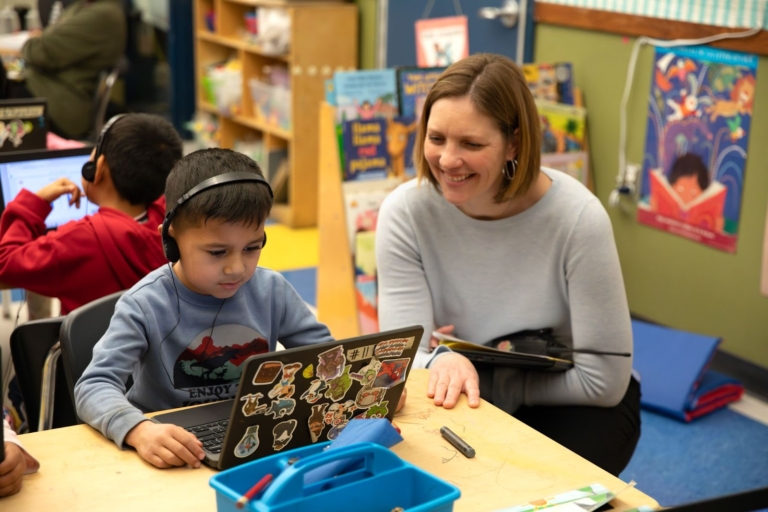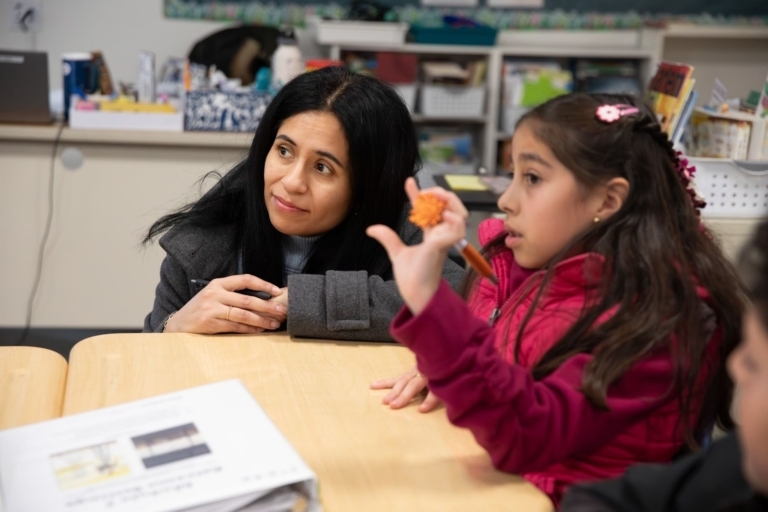Note: This story was originally published on the Chamberlin Family Foundation website. It has been modified to reflect a continuing initiative supported by the Chamberlin Education Foundation.
“What’s your commitment to yourself?”
That internal question motivated Principal Jessica Petrilli to join a peer learning cohort that has inspired a small group of WCCUSD school leaders to renew their focus on effective teaching and learning.
In her fifth year as principal at Helms Middle School, Petrilli is one of seven school leaders who this year joined the Principal Community of Practice cohort to strengthen their instructional leadership and promote best practices at their school sites.
“There’s a lot of us that are really hungry, and we just want to learn more. We see the value in community,” Petrilli said.
The Community of Practice (CoP) launched in 2018 when a group of experienced West Contra Costa principals from some of the district’s highest-need schools came together to learn how to better overcome shared challenges in driving student academic growth.
With support from the Chamberlin Education Foundation (CEF), these school leaders convened twice monthly throughout the school year to meet with experts in curriculum and assessment, teacher observation, and standards alignment. By the end of the year, the principals had honed their instructional vision and crafted an actionable plan to drive academic gains at their schools.
“The Community of Practice will provide important coaching support for leaders to hone their skills around effective instruction, quality curriculum implementation, and teacher collaboration,” said WCCUSD Superintendent Matt Duffy in a written statement about the program.
“Additionally, it gives teachers an opportunity to grow in areas of learning that are personalized and differentiated,” Duffy said.
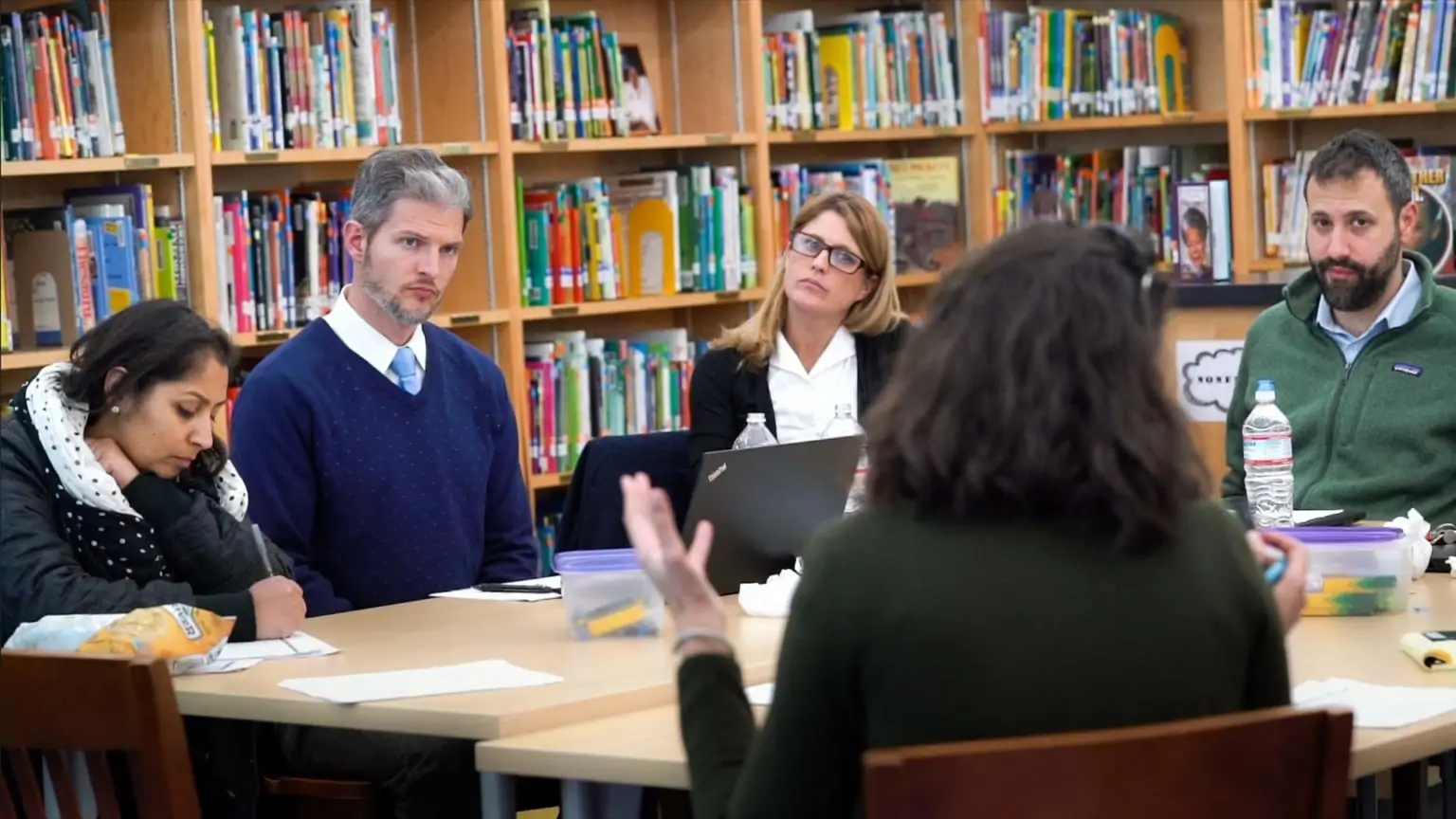
The Community of Practice extends CEF’s continuing investment in nurturing strong WCCUSD school leaders. The foundation supports school leaders to advance its belief that strong instructional leadership is a key driver to improve student performance over the long term.
This belief is rooted in research showing that strong leadership is critical to turning around underperforming schools, according to Caroline Damon, Senior Program Officer at CEF, who administers the Community of Practice.
“The evidence is clear that for historically struggling schools, great leadership is necessary to achieve ambitious goals.” Damon said.
“We’re hoping that providing additional support for school leaders — especially those who serve our district’s highest-need students — will allow them to successfully implement practices that lead to even greater academic gains for students in the coming years,” Damon explained.
The CoP held its first session in October, 2018, and welcomed principals from Nystrom, Verde, Peres, Chavez, Wilson (now Michelle Obama), and Montalvin elementary schools, in addition to Helms. After an open application process, CEF selected principals who demonstrated a clear desire to become stronger and more effective instructional leaders.
This year’s participants met after school and on Saturdays to learn from best-in-class professional development partners including Achievement Network and TNTP. Each participating principal was also matched with an experienced leadership coach who had served as a principal in a school known to be highly successful at serving low-income students.
In addition, the CoP facilitated school reviews during which members of the cohort visited each other’s sites to observe, identify strong practices and note opportunities for improvement in each school’s instructional methods.
“They’re incredibly open to feedback and being pushed, and they really want to improve their practice.” —Jeff Rutel, Founder, 102 Group
“We’re trying to help them learn how to look at their school on a daily basis and focus on the things that matter most,” said Jeff Rutel, who led the school review sessions. Rutel is the founder of 102 Group, a national leadership training organization that conducts on-site school quality reviews and provides leadership coaching to school leaders.
During the two-day school reviews, Rutel said, the primary goal for principals is to identify three “key levers” that can make a difference for student success, and “direct their work toward doing those really well.”
To further broaden the principals’ exposure to best practices, the CoP also sponsored school leaders to attend acclaimed professional development conferences including the UnboundEd Standards Institute in Los Angeles and the Managing to Change the World workshop in Oakland.
“You can’t do this alone.” —Jessica Petrilli, Principal, Helms Middle School
As they look forward to building on the takeaways from this year’s sessions, the principals can approach their instructional leadership with a renewed focus on what works, and how to implement successful practices school-wide.
“I consider myself to be a life-long learner,” said Claudia Velez, Principal at Wilson Elementary School (now Michelle Obama Elementary). This year, Velez is leading her school through a facilities upgrade that will create “flex learning” suites designed to be more adaptable to project-based learning and various instructional methods.
For Velez, the shift in classroom design is a perfect opportunity to reconsider the instructional practices that engage learners and drive academic growth.
“Because we have to change so rapidly,” Velez said, “I really, really am trying to get as much knowledge as I can from a bunch of different places.”
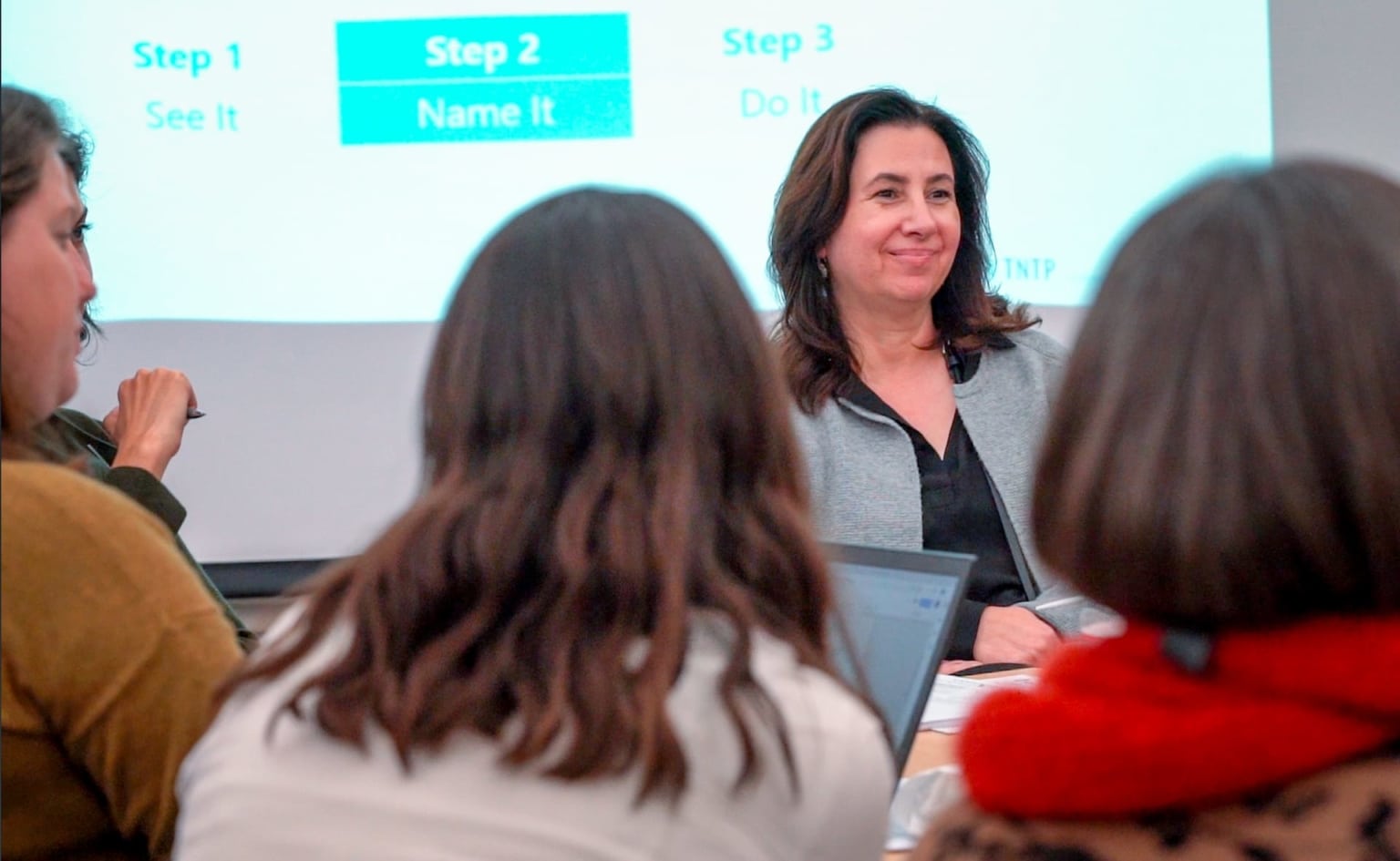
When the CoP began, Velez saw a chance to connect with peers and gain professional development that could enhance her team’s impact. She is already applying insights from the CoP to help her teaching team implement standards-aligned curricula, ensure rigorous, high-quality instruction across grade levels, and adopt techniques that are working for other WCCUSD principals.
“This particular group of principals I have already collaborated with, I currently collaborate with, and I respect and value their insights,” Velez said. “I felt like it would be a good opportunity for me to delve into some interesting topics that all of us are working on.”
“I consider myself to be a life-long learner.” —Claudia Velez, Principal, Michelle Obama Elementary School
The principals explored a range of topics throughout the year, guided by experts like Melissa Granetz, a Leadership Coach at TNTP. Granetz, whose sessions focused on instructional leadership, found a “pretty impressive” cohort that demonstrated a clear desire for continued professional growth.
“There was no convincing needed with this group,” Granetz said. “They’re eager to grow and get better.”
But improving instructional leadership calls for “an ecosystem of support,” Granetz explained, noting that quality instructional leadership requires a broad set of conditions that can lead to success across each school.
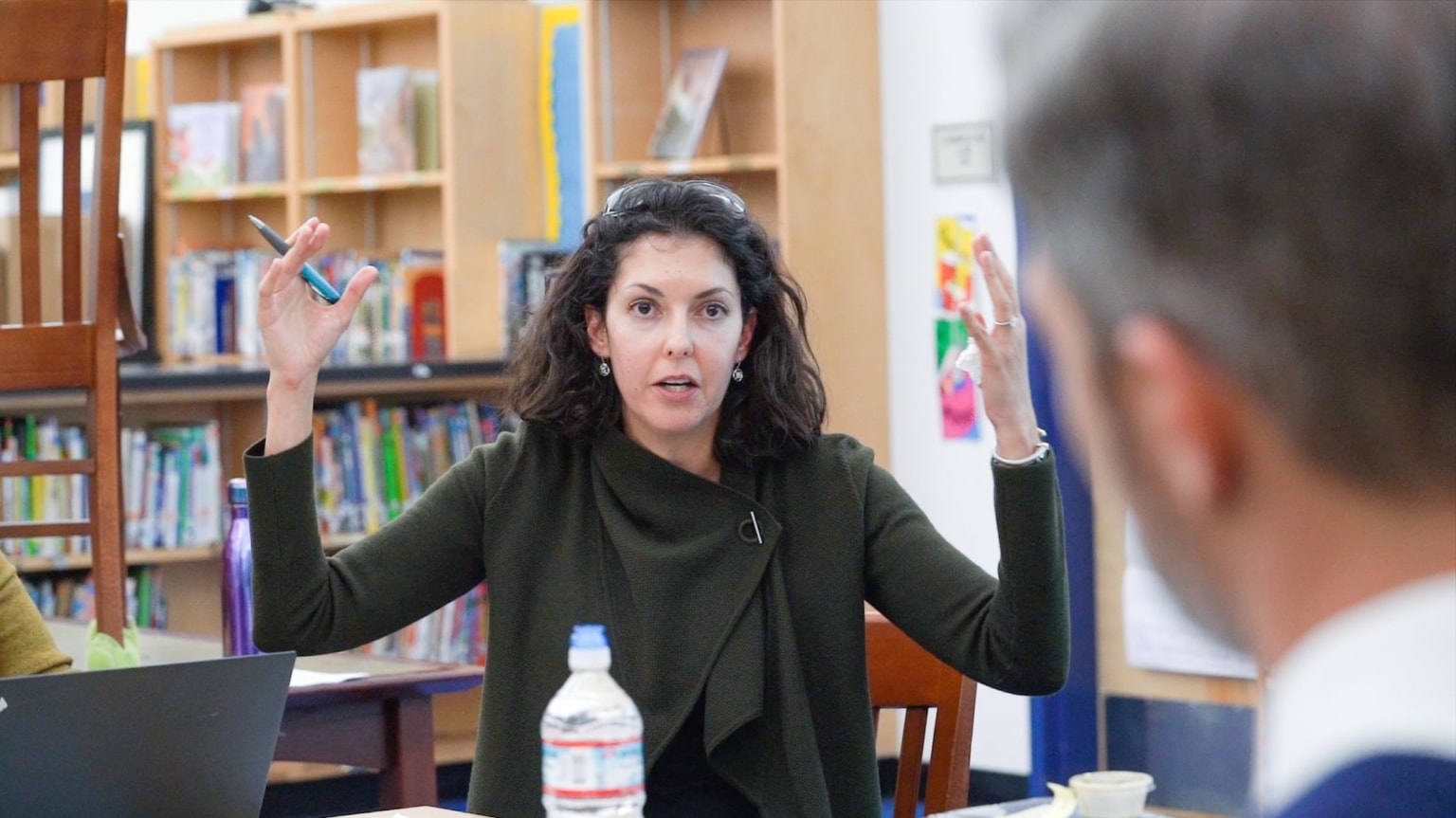
Creating this ecosystem, she said, is the “core function” of each participant’s role as a principal.
“They need to systematize it,” Granetz said, “so that the teachers can benefit from it, and, ultimately, so that the students will benefit.”
When effective leadership becomes part of the school’s culture, Granetz added, the benefits can be profound.
“There is a lot of research that shows that teachers who are in a school with a solid instructional culture, who know the vision for instruction and get support to reach that vision are more likely to stay,” she said.
Over time, Granetz said, a culture that supports teacher retention translates to “time well spent” when it comes to student success.
“They’re eager to grow and get better.” —Melissa Granetz, Leadership Coach, TNTP
For Helms Principal Jessica Petrilli, time spent with peers in the Community of Practice is part of her personal commitment to ongoing improvement.
In order to provide constructive leadership for her staff, she says, she depends on continued learning and camaraderie to keep her goals ambitious and her team energized year over year.
“You can’t do this alone,” Petrilli said, adding that the opportunity to bring vice principals to the sessions allowed her team to zero in on the practices that matter most to drive student learning.
“It takes a community to do this work,” Petrilli explained, noting that the CoP has allowed her to tap into support from principals she trusts, and in turn provide stronger coaching for the teachers she leads.
“It’s about finding those pockets where it’s safe to be vulnerable, but also where you can challenge yourself,” Petrilli said. “I’m re-motivated now to sit side-by-side with my VPs or my coach and make sure we’re all aligned.”
“That’s what hooked me into wanting to join this cohort, just seeing that it’s really authentically trying to help school leaders,” Petrilli said. “We’re all better together, thinking it through.”
“It’s a commitment to yourself,” Petrilli continued, “to invest in yourself, in your professional development.”
“It’s for the long haul.”
